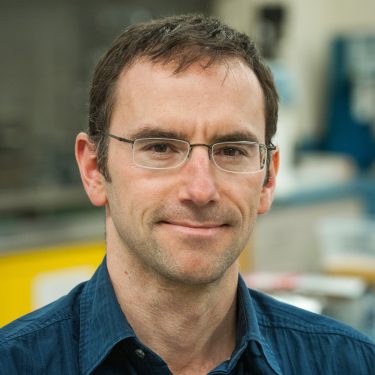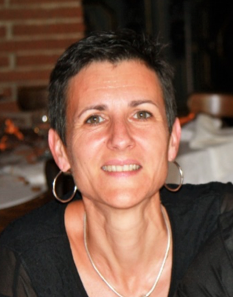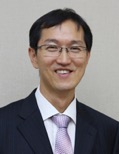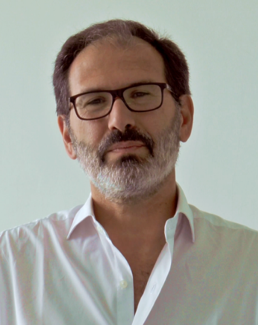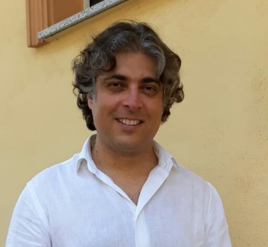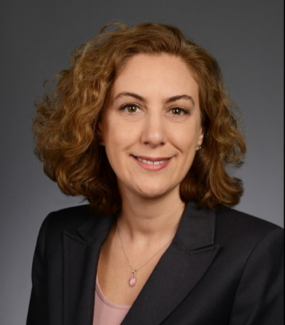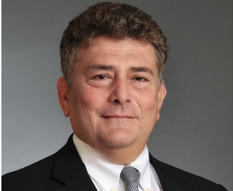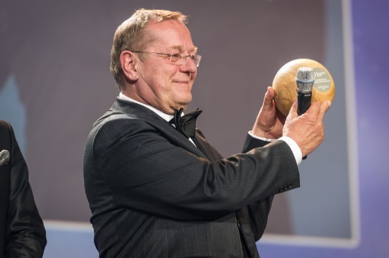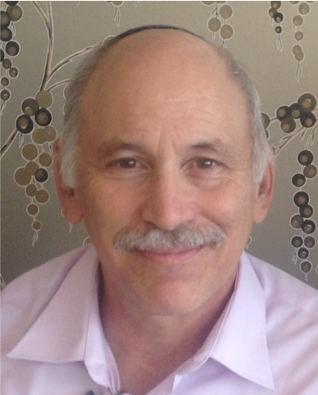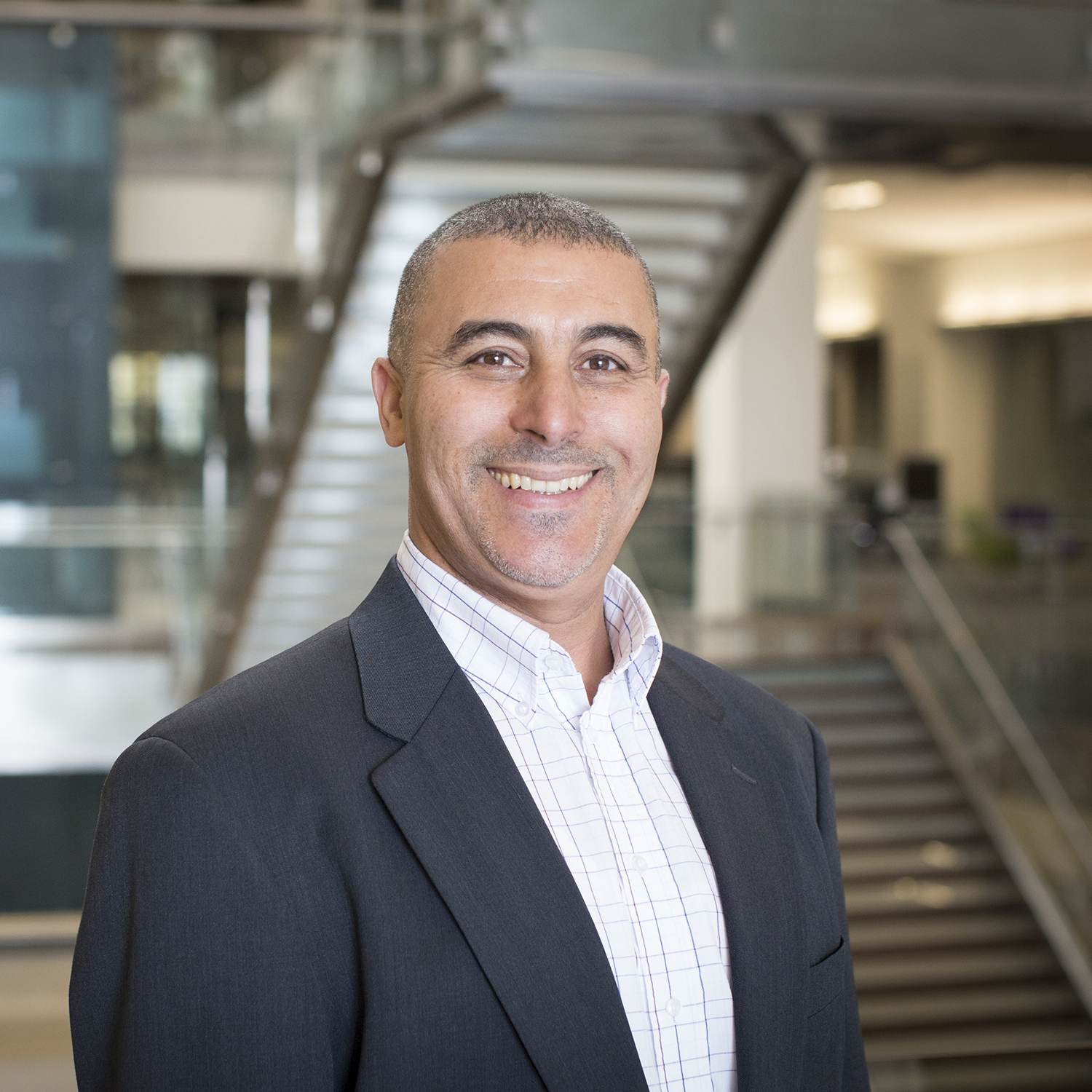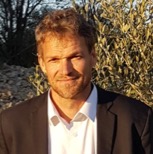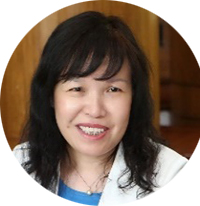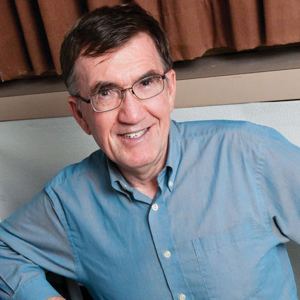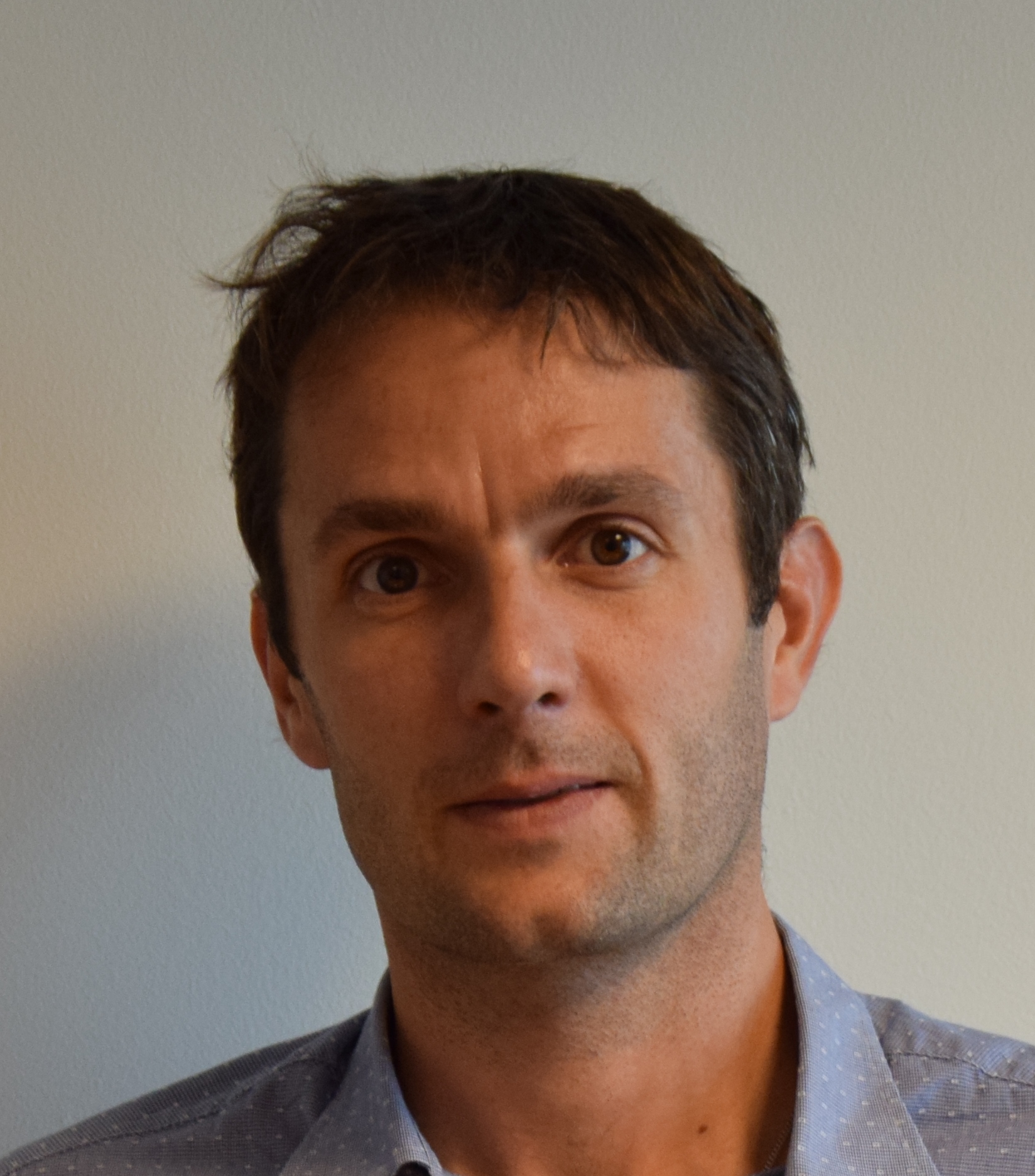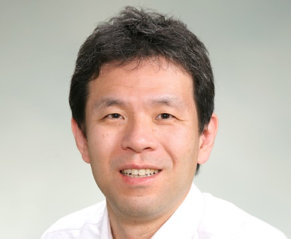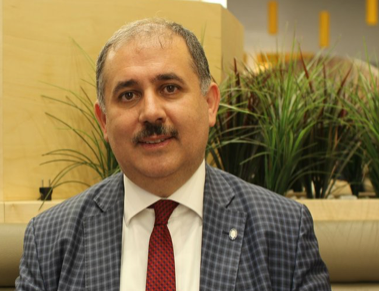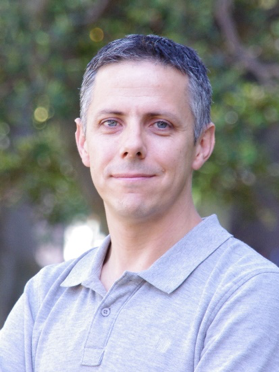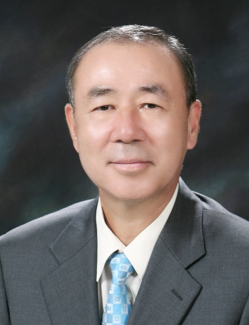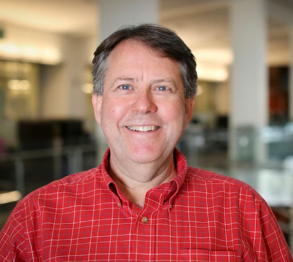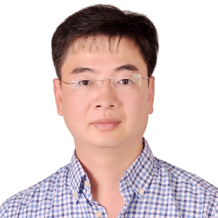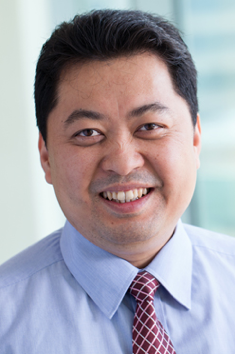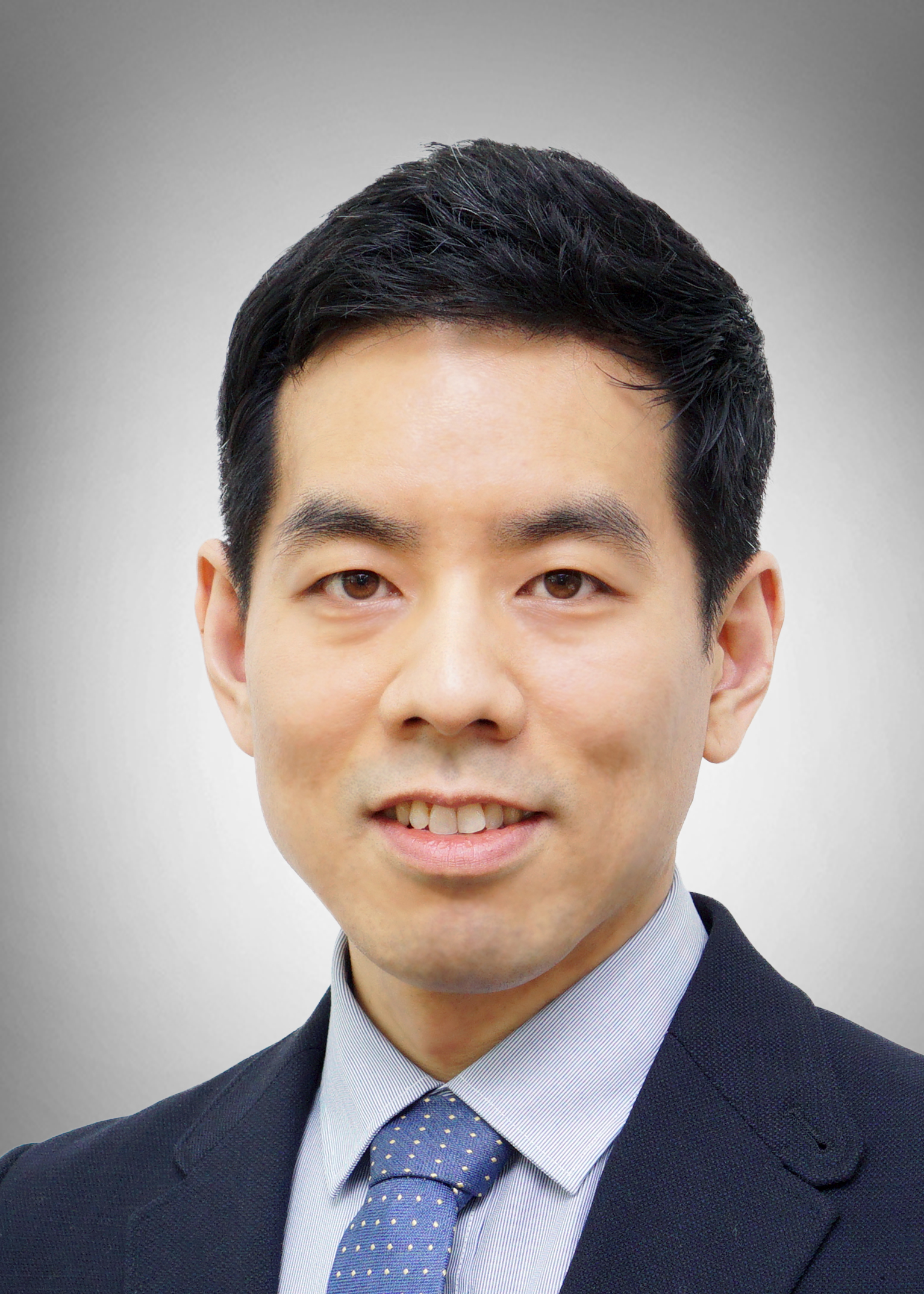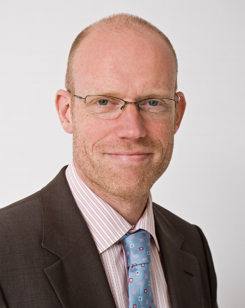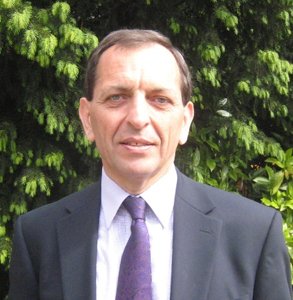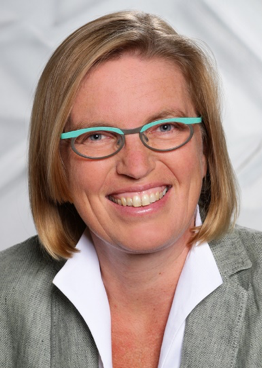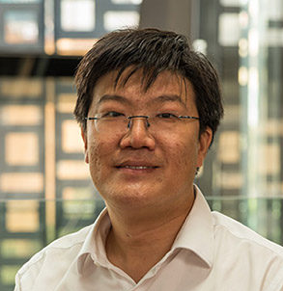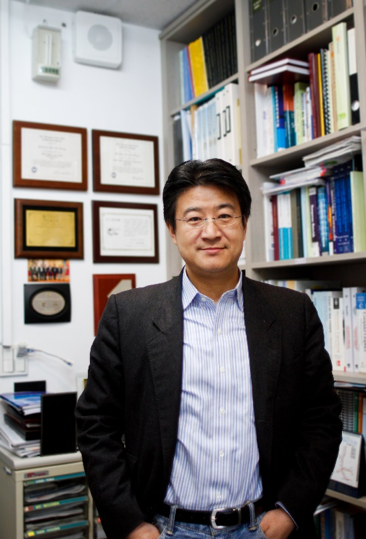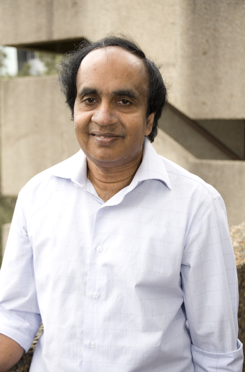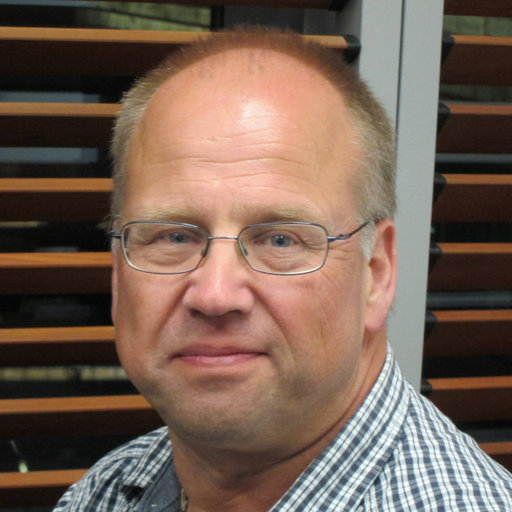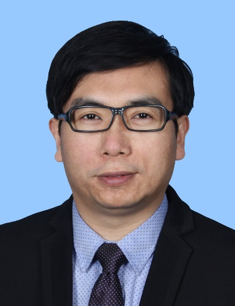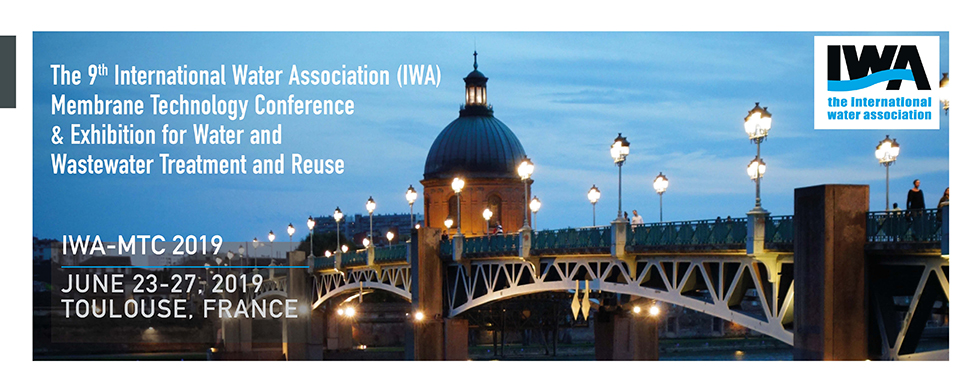
|
|
|
Program > Keynotes
|
|
Pierre BERUBE, Canada“Biofilm impact on integrity of passive membrane systems” |
|
Dr. Pierre Bérubé is a Professor in the Department of Civil Engineering at the UBC and Director of the Joint UNBC/UBC Environmental Engineering Program. He has over 20 years of research and consulting experience dealing with water quality assessment and treatment, with particular emphasis on the development of membrane and biological technologies for water treatment applications. Much of his recent research focuses on the development of passive/low-cost water treatment systems for small and/or remote communities in North America and abroad. Dr. Bérubé actively collaborates with researchers nationally and internationally. He serves as a board member of the Canadian Association on Water Quality and is associate editor for the Canadian Journal of Civil Engineering. |
---
|
|
Christel CAUSSERAND, France“Impact of chemical cleaning by oxidative agents on properties and lifetime of polymeric membranes” |
|
Dr Christel Causserand is professor at the University of Toulouse, France, head of the Chemistry Department of the Faculty of Science and Technology. She conducts her research in the Chemical Engineering Laboratory, and since she obtained her Ph.D. degree in 1992, she has been working on membrane processes applied to drinking water production and wastewater treatment. Her main research interests cover both contaminants removal (bacteria, viruses, micropollutants) and membrane ageing due to cleaning in place procedures in water treatment plant. |
---
|
|
Kwang-Ho CHOO, Korea“Two-in-one electrochemical membrane system for advanced wastewater treatment” |
|
Dr. Choo received his Ph.D. degree from Seoul National University, Korea in 1996 and since then has been working on membrane technology for water and wastewater treatment, pursuing breakthrough innovations for novel membranes and membrane processes. His recent research interests include electrochemical membrane filtration, quorum quenching membrane bioreactors, and iron oxide coated media filtration. He is keen to find synergistic strategies for the best practices of separation, treatment, abatement, and recovery on the management of water and wastewater streams. He has been actively involved in academic societies, such as Korean Society of Environmental Engineers, Membrane Society of Korea, International Water Association, American Chemical Society, and Water Environment Federation as a board/editorial member. |
---
|
|
Joao G. CRESPO, Portugal“Development of photocatalytic membranes and reactors for water and wastewater treatment” |
|
Professor of Chemical Engineering at the Faculty of Sciences and Technology - Universidade Nova de Lisboa, Portugal. Director of the Laboratory of Membrane Processes at iBET. Former Vice-Rector for Research and Innovation and former Coordinator of NOVA Doctoral School. Former Vice-President of Fundação para a Ciência e a Tecnologia (Portuguese National Science Foundation). Member of the editorial board of “Journal of Membrane Science”, “Journal of Biotechnology”, “Desalination and Water Treatment” and “Membranes”. Editor of 2 books, 23 book chapters and 260 publications referred in Scopus. Founder of the spin-off company “Zeyton Nutraceuticals”. |
---
|
|
Efrem CURCIO, Italy“Creating value from seawater desalination brine: an integrated membrane-based approach” |
|
Dr Curcio is Associate Professor at the Department of Environmental and Chemical Engineering – University of Calabria. Research Associate at the Institute on Membrane Technology-National Research Council of Italy (ITM-CNR). Co-author of 96 papers on peer-reviewed international journals, 3 books edited by Elsevier, Imperial College Press and De Gruyter, 6 book chapters, >150 publications on congress proceedings prevalently international, 1 patent. Twenty years of experience in design and development of advanced membrane contactors including Membrane Distillation/Crystallization for biotechnological applications, Integrated Membrane Processes for desalination and wastewater treatment, membrane systems for energy conversion (salinity gradient power). |
---
|
|
Maria FIDALGO, USA“Solvent permeation behavior of laser induced graphene on ceramic membrane” |
|
Maria Fidalgo is an associate professor in the Department of Civil and Environment Engineering at the University of Missouri. She holds a BS degree in chemical engineering from the Buenos Aires Institute of Technology and MS and PhD degrees from Rice University. Her expertise lies in the field of water quality and treatment, with emphasis in developing new materials and processes for advanced treatment. Current research projects include the use of nanostructured materials for the chemical degradation, membrane filtration, adsorption and the fabrication of sensors for detection of emerging contaminants. Her interests also include fate, transport of nanomaterials and sustainability. |
---
|
|
Val FRENKEL, USA“Membrane Technologies: State of the Art and Areas of Future Innovation” |
|
Dr Val S. Frenkel is VP Process Engineering, Managing Director Pacific Coast by Greeley and Hansen, California. He is an eminent figure in the water industry with his expertise in water and wastewater treatment, water reuse, and membrane technologies, including desalination. Equally instrumental was Dr. Frenkel's role in the development of low pressure membrane technologies and applications which are used and taught at the university level. Dr. Frenkel is also a Diplomate, Water Resources Engineer (D.WRE) of the American Academy of Water Resources Engineers (AAWRE), which is part of the Academy of the Civil Engineering Certification, Inc. (CEC). |
---
|
|
Franz FRECHEN, Germany“Combat Poverty & improve Social Cohesion in Third World Countries with Membranes” |
|
Dr Franz Frechen is full Professor and Head of the Department of Sanitary and Environmental Engineering (DESEE), University of Kassel Head, Institute for Water, Waste, Environment, University of Kassel. |
---
|
|
Jack Gilron (Israel)“IEMB- Donnan dialysis study of oxyanion removal – effect of membrane and contacting mode" |
|
Prof. Jack Gilron DSc., Chem Eng., (Technion) is Head of DWT (Desalination and Water Treatment Department), Zuckerberg institute for Water Research, Blaustein Institutes for Desert Research, Ben Gurion University of the Negev. He began working in water treatment more than 40 years ago in industry in the U.S. and worked in water treatment industry more than 10 years before joining Ben Gurion University in 1997. His professional activity focused on new opportunities for introducing membrane technology to achieve water and product recovery from waste-streams and in increasing the recovery in desalination processes. He has worked 1) on waste-streams from specialty chemicals industry, olive mill wastewater, and hypersaline brines for mineral production, among other systems 2) fouling and scaling in RO,ED, and membrane distillation systems, 3) electromembrane processes for contaminant removal and upgrading of groundwater for irrigation. |
---
|
|
Noreddine Ghaffour (Saudi Arabia)“Novel Feed Spacers Design for Fouling Mitigating in Membrane Filtration" |
|
Noreddine Ghaffour is a Professor at the Water Desalination and Reuse Center at KAUST. He has over 27 years of experience in the field of drinking water treatment technologies, and has specialized in the area of membrane and thermal desalination processes. Over the years, he has made major contributions becoming an internationally recognized expert in desalination technologies and its related fields. He obtained his PhD degree from Montpellier University, France, in 1995. He is the author of over 300 journal and conference publications, several patents and chapters in textbooks. He is a frequent keynote speaker in international conferences, seminars and workshops. |
---
|
|
Dr Marc Heran, France
|
|
Dr Marc Heran is professor of Chemical Engineering at the European Membrane Institute, University of Montpellier (France). Its fields of expertise concern water and wastewater treatment, separation process, membrane separation, biological process and membrane bioreactors. He is a committee member of the IWA’s specialist group on Membrane Bioreactor modelling and control. His research career focuses on process intensification by the help of membranes, membrane energy demand, and circular economy. The objectives are to explore reliable, efficient and sustainable intensive technologies for wastewater treatment tuned to good water quality production, molecules of interest extraction or reuse and sustainable energy generation. |
---
|
|
Xia HUANG, China“Membrane autopsy deciphering core-microbiota stubborn against online chemical cleaning in a full-scale MBR” |
|
Dr. Xia Huang is a Professor of School of Environment, Director of State Key Joint Laboratory of Environment Simulation and Pollution Control, Tsinghua University, China. She is a fellow of IWA and Chair of Management Committee of the IWA Specialist Group on Membrane Technology. Her main research interests include membrane based wastewater treatment processes, membrane fouling mechanisms and control methods, bio-electrochemical technologies for wastewater treatment. She has published more than 250 peer-reviewed articles, and was awarded 2009 ES&T and 2018 ESWRT best papers, the 2nd Class of the State Science and Technology Progress Award thrice. |
---
|
|
Peter HUCK, Canada“Developing Biofiltration Pre-Treatment to Reduce Membrane Fouling” |
|
Professor and NSERC Chair holder in Water Treatment in the Department of Civil and Environmental Engineering at the University of Waterloo. Dr. Huck has over 30 years of experience in directing research related to drinking water treatment, including several major studies for the Water Research Foundation. He also has more than 100 refereed publications and several hundred conference proceeding papers. As a result of his research work, he has received several publication awards from the American Water Works Association (AWWA) including the 2008 A.P. Black Research Award, making him the first non-American recipient of that award. He received the George Warren Fuller Award from the Ontario Water Works Association in 2007 and also received the Albert E. Berry Medal from the Canadian Society of Civil Engineers. |
---
|
|
Matthieu JACOB, France"Membranes in the Oil & Gas industry, present and future" |
|
Matthieu holds a PhD in process and environment engineering from the INSA, in Toulouse. He joined Total in 2010 to head up the water treatment R&D team. He has been working on a wide range of topics within his field of expertise (membrane processes), but also in various domains relating to water treatment both for R&D purposes and as part of assistance to the different Total branches. Matthieu recently took on the responsibility of the water treatment R&D sections, where his mission is to organize all R&D carried out on water, giving it a cross-functional and cross-branch dimension. |
---
|
|
Stephen Katz, Canada“The application of membrane bioreactors in Potable Water Reuse” |
|
Stephen is a Market Development Manager at SUEZ Water Technologies & Solutions with over 15 years of experience in the water and wastewater treatment market. In his current role, he is focused on the development of new and existing markets. One key focus area being Water Reuse. Prior to this, he was the Membrane Bioreactor (MBR) product manager focused on the technical and commercial guidance for MBR technology and the development and commercialization of new technologies for wastewater treatment. He has also worked forming strategic partnerships for the sale of SUEZ’s equipment, chemicals and services portfolio. Stephen graduated from McGill University in Montreal, Canada with a Bachelor’s degree in Chemical Engineering. |
---
|
|
Jeonghwan KIM, Korea“Importance of fluidized media for anaerobic fluidized membrane bioreactor: Fouling control, microbial distribution and system performance” |
|
Dr. Jeonghwan Kim is currently an Associate Professor in Department of Environmental Engineering at the Inha University and Director in Sustainable Environmental Membrane Technology Laboratory. He obtained his Ph.D. degree in 2005 from Department of Environmental Sciences and Engineering at the University of North Carolina at Chapel Hill. Before joining the Inha University in 2008, he worked as Research Associate at the Michigan State University. His research interests are membrane technology for water and wastewater treatment particularly with emphasizing anaerobic membrane bioreactor for low or high-strength wastewater treatment with resource recovery. |
---
|
|
Katsuki KIMURA, Japan“Recovery of organic matter from municipal wastewater by direct membrane filtration (DMF): toward net energy-positive municipal wastewater treatment” |
|
Dr. Katsuki Kimura, is Professor at Hokkaido University, and has 20 years research experience into membrane processes. He is serving as the chairman of the IWA Particle Separation Specialist Group, and also serving as the chairman of Membrane Technology Specialist Group in Japanese Society on Water Environment. His current research interests cover both water treatment and wastewater treatment, including characterization of agents causing membrane fouling, resource recovery from wastewater by membrane processes, development of new measures to mitigate membrane fouling. |
---
|
|
Ismail KOYUNCU, Turkey“Resource revovery from water/wastewaters” |
|
Dr. Ismail Koyuncu is currently Professor in Environmental Engineering Department of Istanbul Technical University. He worked as a Dean of graduate school, Senate and Board Member of Istanbul Technical University between 2012-2018. Now, he is the director of National Research Center on Membrane Technologies. He is also member of Turkish Academy of Sciences since 2012. He was awarded with The Scientific and Technological Research Council of Turkey (TUBITAK) Young Scientist Award (2008) and Economic Cooperation Organization (ECO) International Award 2009 (in the field of Environment). His research areas are water and wastewater treatment and reuse, advanced water treatment technologies, membrane technologies, environmental nanotechnology, environmental effects of nanoparticles, hydraulics of water and wastewater treatment plants. |
---
|
|
Pierre LE-CLECH, Australia“Research opportunities for maturing membrane technologies in the water and wastewater industry” |
|
Pierre Le-Clech works in the UNESCO Centre for Membrane Science and Technology at the University of New South Wales. He has researched many aspects of the water and wastewater treatments by membrane processes. In particular, some of Pierre’s recent research activities are related to the impact of membrane ageing and new opportunities to reuse, recycle and dispose of old membranes. Finally, Pierre has recently led a milestone project, developing new set of national validation guidelines for MBR and RO used in water recycling. Pierre also regularly offers his expertise to industrial clients facing challenges related to membrane operations. |
---
|
|
Chung-Hak LEE, Korea“Confronting challenges and future directions in QQ-MBR” |
|
Dr Chung-Hak Lee is professor (emeritus) at school of chemical and biological engineering in Seoul National University, Korea. He received Dr.Ing. in INSA de Toulouse, France in 1980. He was a chairman of Membrane Technology Specialist Group (2010~2013) and now a fellow in International Water Association (IWA). He champions the field of Quorum Quenching that links molecular biology and engineering sciences to control a chronic problem of biofouling in MBR. Since 2010, the so-called ‘QQ-MBR’ has been propagating wider and wider into academic and industrial sectors. He received ‘The 4th Membrane Technology Award’ in 2017. |
---
|
|
TorOve LEIKNES, Saudi Arabia“Water reclamation and reuse for urban agriculture; pros and cons, opportunities or unsustainable?” |
|
TorOve Leiknes is Professor of Environmental Engineering, at the Water Desalination and Reuse Center (WDRC/BESE), King Abdullah University of Science and Technology (KAUST) in Saudi Arabia. He joined KAUST in 2013 and served as the Director of WDRC from 2014-2017. Prior to KAUST, he was Professor of Environmental Engineering at NTNU, Norway. Main research interest is the application of membrane technology in environmental engineering. Research includes coupling membranes with physical / chemical and biological processes for advanced water and wastewater treatment, energy efficient water treatment, sustainable strategies targeting water reuse. Current research focus on integrated technologies for water reclamation and use in urban agriculture. |
---
|
|
Long Duc NGHIEM, Australia“Strategic membrane distillation applications beyond drinking water production” |
|
Prof Nghiem is the Director of the Centre for Technology in Water and Wastewater at the University of Technology Sydney. He has done both fundamental and applied research work in waste and wastewater treatment, anaerobic digestion, desalination, water reuse, removal and degradation of specific organic contaminants, and membrane separation processes (e.g. membrane bioreactor, forward osmosis, and reverse osmosis). To date, Prof Nghiem has supervised to completion 21 PhD student projects. |
---
|
|
Giorgio MANNINA, Italy“Frontiers and new perspectives in MBR modelling and control” |
|
Professor of Sanitary and Environmental Engineering at the Engineering Department of Palermo University – Italy. His research interest and focus is on: advanced wastewater treatments (MBR, MBBR, hybrid processes, IFAS, Granular systems etc..), BNR processes, environmental water quality mathematical modelling. He is Associate/Guest Editor of multiple ISI Journals: Journal of Bioresource Technology, Journal of Environmental Management, Journal of Hydrology. He is Chair of the International Water Association (IWA) Task Group on Membrane Bioreactor modelling & control and Member of the IWA Specialist Group "Membrane Technology". Prof. Mannina is Fulbright research Fellow at Columbia University (New York, USA)- 2018. |
---
|
|
How Yong NG, Singapore“Challenges and Improvements in AnMBR Operations” |
|
Dr. Ng How Yong is a Professor and a Provost’s Chair in the Department of Civil and Environmental Engineering, National University of Singapore (NUS). He is also the Director of NUS Environmental Research Institute and the Director of the Sembcorp-NUS Corporate Laboratory. Professor Ng’s core research interest is in sustainable water management, focusing on biological treatment technologies, membrane bioreactor and microbial electrochemical sensor for water reuse and resource recovery. Professor Ng is a Fellow of the IWA, an Associate Editor of Water Research and an Editor of the Journal of Water Reuse and Desalination. He is also a Vice-Chair of the IWA Specialist Group on Membrane Technology and a member of the IWA Publication Committee. He is currently the President of the Environmental Engineering Society of Singapore. |
---
|
|
Hyun-Suk OH, Korea“Biofouling Control in Reverse Osmosis Water Treatment Process by Quorum Quenching” |
|
Dr Hyun-Suk Oh is an assistant professor in the Department of Environmental Engineering at Seoul National University of Science & Technology (SeoulTech) in Korea. He received his Ph.D. degree from Seoul National University in 2013 and worked as a research fellow at Nanyang Technological University in Singapore before joining SeoulTech in 2018. He developed bacterial quorum quenching technology to control biofouling in membrane bioreactors by disrupting bacterial cell-cell communication. Based on the bacterial signaling mechanism, his current research focuses on improving the performance of various water and wastewater treatment systems. |
---
|
|
Stefan PANGLISCH, Germany“Raising synergy effects in hybrid membrane processes" |
|
Stefan Panglisch has been responsible for the Chair Mechanical Process Technology/Water Technology (MVT/WT) at the University of Duisburg-Essen (UDE) since June 2014. Associated with the professorship is a position as scientific director at the Rheinisch-Westphalian Institute for Water Research (IWW), a nationally and internationally renowned research and consulting institute. Until taking over the chair, Stefan was head of the R&D department of inge watertechnology, a subsidiary of the chemical company BASF and one of the world's leading technology providers for ultrafiltration technology. |
---
|
|
Graeme PEARCE, UK“Survey of Practice and Experience of Membrane Pre-treatment to Control Bio-fouling for Seawater Desalination” |
|
Dr Graeme K Pearce is an Oxford educated membrane technology specialist with more than 35 years’ experience in the membrane industry. After working with BP, Kalsep and Hydranautics in various aspects of membrane R&D and system design, Graeme formed Membrane Consultancy Associates (MCA) in 2005. MCA works with a broad spectrum of users and providers of membrane technology on performance improvement, dispute resolution, and as an expert witness. Graeme also works with new entrants and prospective investors. He is well known in the field of water and membranes through workshops, teaching, lectures and publications including his own book. |
---
|
|
Andrea SCHAFER, Germany“Directly-coupled solar powered membrane systems: experience with fluctuating energy in Tanzania” |
|
Andrea Schäfer is Professor of Water Process Engineering, Faculty of Chemical and Process Engineering and Head of the Membrane Technology Department, Institute of Functional Interfaces (IFG-MT) at the Karlsruhe Institute of Technology. Previously she was Professor at the Nelson Mandela African Institute of Science and Technology in Tanzania, East Africa. 2006 to 2013 she was the Chair of Environmental Engineering at the University of Edinburgh, Scotland, UK following 3 years as a senior lecturer at the University of Wollongong, Australia and 3 years as postdoc & lecturer at the University of New South Wales, Sydney Australia. She has experience with several membrane processes encompassing predominantly water treatment, desalination, water recycling, remote water supplies and international development. |
---
|
|
Ho Kyong SHON, Australia“GreenPRO for osmotic pumping employing fertilizer draw solution” |
|
Professor Ho Kyong Shon is an Australia Research Council (ARC) Future Fellow, the President of the Membrane Society of Australasia (MSA), the Vice President of the Aseanian Membrane Society (AMS), and the Deputy Director of Center for Technology in Water and Wastewater. He specializes in understanding physico-chemical water treatment processes in water, wastewater and seawater. His research career focuses on studying advanced membrane fabrication and the application of membrane based desalination in detailing membrane fouling mechanisms and developing novel desalination technology. |
---
|
|
Kuo-Lun TUNG, Taiwan“Omniphobic Membranes for Membrane Contactors” |
|
Kuo-Lun (Allan) Tung, is now a Huang C.H. Chair Professor of Department of Chemical Engineering at National Taiwan University (NTU) in Taipei, Taiwan. Before joining NTU since August 2012, he was the Director of the R&D Centre for Membrane Technology at Chung Yuan University from 2009 to 2012, with a specialty of research and development on membrane filtration applications for 20 years. Recent research topics include design of novel inorganic membranes, fundamental researches of membrane fouling and CFD analysis of multi-phase flow and membrane module design for water/wastewater treatments. Allan is also active in the international affairs in membrane filtration discipline. He was a council member of The Filtration Society in UK within 2008-2012 and also serving as the vice chair of the membrane technology specialist group in international water association (IWA). He also a newly elected fellow of IWA since 2018. |
---
|
|
Saravanamuth VIGNESWARAN, Australia“Rubidium Extraction from Seawater Brine by an Integrated Membrane Distillation-Selective Sorption System” |
|
Prof. S. Vigneswaran is currently Distinguished Professor of Environmental Engineering in the Faculty of Engineering and IT at the University of Technology, Sydney (UTS), Australia. He obtained his Doctor of Engineering and Dr.Sc from University of Montpellier and University of Toulouse respectively. During the last twenty five years, he has made significant contributions to the understanding of membrane systems in water reuse and desalination. He has several national and international projects in this area. He is a Fellow of the International Water Association. He is a committee member of the IWA’s specialist group on membrane technology and currently secretary of the rainwater harvesting group. |
---
|
|
Hans VROUWENVELDER, Saudi Arabia“Biofouling of membrane systems: diagnosis, prediction and prevention” |
|
Dr. J.S. (Hans) Vrouwenvelder is director of the Water Desalination and Reuse Center (WDRC), and full-professor at King Abdullah University of Science and Technology (KAUST), Saudi Arabia and visiting professor at Delft University of Technology in the Netherlands. Dr. Vrouwenvelder has over 25 years of expertise in research on biofilms, membrane biofouling and drinking water microbiology. |
---
|
|
Zhiwei WANG, China“Antibiofouling Membranes for Water and Wastewater Treatment: Antimicrobial Mechanisms and Fabrication Strategies” |
|
Zhiwei Wang is a full professor of School of Environmental Science and Engineering, Tongji University, China. Currently, he is a member of Management Committee of IWA Specialist Group on Membrane Technology, Chair of the IWA China Young Water Professionals National Committee, and an editorial board member of Scientific Reports and Current Environmental Engineering. His major interests are membrane technologies for wastewater treatment. He has authored/co-authored over 110 peer-reviewed papers in SCI-indexed journals including Environmental Science & Technology, Water Research, Journal of Membrane Science and so on with over 4000 citations, and listed as Most Cited Chinese Scholars in Environmental Sciences Field (Scopus-Elsevier, 2016, 2017 & 2018). He was awarded Science & Technology Development Award of Ministry of Education of China (First-class) in 2017. |
